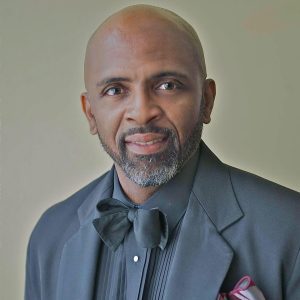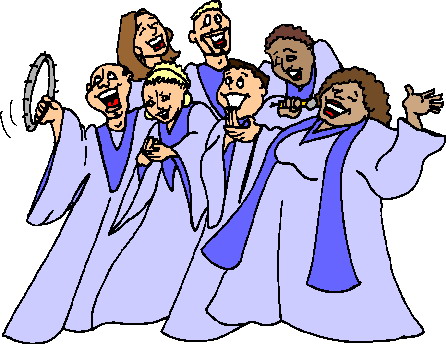FROM THE CONCERT HALL TO THE CHURCH HOUSE:
As COVID-19 continues to grip our Nation, the voices of many of our churches wrestle with the reality that their may be no choral singing for quite a while.
by Patrick D. McCoy
The coronavirus pandemic has certainly had a devastating impact on the livelihoods of citizens around the world. Virtually every facet of industry has been affected, causing everyone to reconsider how they will accomplish things, both professionally as well as personally. Without a doubt, the arts is an area that has taken a tremendous toll because of the current pandemic.
This webinar was perhaps one of the first of many that begin serious conversations on the future of the performing arts post COVID-19:
Since COVID-19 has wiped out many performances and has limited many meetings to the virtual medium, there have been many webinars and online discussions on the topic. One that was very popular was a webinar featuring four of the country’s leading vocal organizations, in discussions centered around the impact of the pandemic in the performance of vocal music and the risk associated in academic, church and concert settings. Further discussions have also been mounted by other organizations.

(Dr. Tony McNeill serves as Director of Choral Activities and Department of Music Chair at Clinton College in South Carolina.)
Dr. Tony McNeill, Director of Choral Activities and Chair of the Department of Music at Clinton College in South Carolina has been keeping abreast of the trends of the pandemic by curating the presentations and data of his colleagues. Dr. McNeill very thoughtfully shared his sentiments about the dilemma in his social media post. This excerpt from his Facebook status has continued discussion, particularly in the context of the African-American circles of music.
“As churches begin the process of re-entry, it is critical for worship ministers and clergy to understand that our current reality demands we design worship protocols that factor physical health and safety above performance, artistic gratification, and nostalgia. As musicians and artists sit at the planning table with clergy and other decision-makers, keep the wellness of the congregation and those who serve/lead in ministry as the first order of business. In doing so, it may mean you have a soloist (or a duo, trio, or quartet, depending on space) that renders (pre-recorded) vocal music to the congregation and to God on behalf of the congregation. Or, it may mean asking a masked congregation to only hum during the last stanza or at the refrain of the opening hymn or worship song. We cannot sing the same way we used to — if we sing at all. If truth be told, some of us are more concerned with finding the perfect come-back song (set) to conjure a social-media-worthy praise break than we are about the need to dismantle previous notions of worship leading that may put our congregations, singers, and musicians at risk. There is research available. There are medically-informed suggestions and important conversations going on regarding the role of church choirs and singing that you should consider before your church re-opens” he stated.
I had the opportunity to speak with Dr. McNeill further about his concerns and the impact of COVID-19 in the various musical settings:
“As an itinerant worship leader, conference musician, and guest conductor, I will have to ask a whole new set of questions when requests come for me to participate in any physical gathering of corporate worship. As much as I love the work, collaborating with others in planning and leading worship, and the financial support, it would be selfish of me not to make the safety and well-being of myself and others the priority. At the moment, I do not foresee being engaged in any in-person worship services that require corporate singing. I must develop protocols to insure my safety and the safety of those who will gather. Based on the research shared recently by scientists, it will be critical to re-imagine the use of vocal music in all gatherings. Perhaps we lean more into the use of instrumental music only. In the grand scheme of things, I do not think it is wise for us to re-enter public spaces of worship of any kind” Dr. McNeill shared.
With the serious nature of the pandemic and its impact on the entire music community, the discussions have intensified. Dr. Valerie D. Johnson assembled an outstanding panel discussion of experts who spoke to the implications from a diverse perspective with particular emphasis on the concerts on the African-American church music experience. Panelists included Dr. Joyce Garrett, Dr. Patrick Lundy and Dr. Karla Scott, among others. Watch her webinar here:
Continuing the conversation in the realm of music education was a discussion led by music educator Maria A. Ellis. Ellis, who has had extensive experience as a choral conductor created a forum that allowed the participants to brainstorm with ideas around the topic. You may find her webinar here:
In closing, whether we are speaking about the concert hall, church or academic settings, this dilemma of how we will proceed in the arena of the performing arts will be the topic of discussion for quite a while.
A native of Petersburg, VA, Patrick holds a BM in Vocal Performance from Virginia State University and a MM in Church Music from Shenandoah Conservatory. Formerly the Performing Arts Columnist for Washington Life Magazine, he currently is a freelance writer, publishing articles for several noted publications, including The Washington Post, Early Music America Classical Music Voice North America, The Afro-American Newspaper, CBS Washington and Examiner.com. He is a member of the Music Critics Association of North America, National Association of Negro Musicians, Inc., The American Choral Directors’ Association, a member of the Shenandoah University Alumni Board of Directors and a Life Member of Alpha Phi Alpha Fraternity, Inc. He serves as Organist/Choirmaster at Saint John’s Episcopal Church, Zion Parish in Beltsville, MD and serves on the music faculty of Virginia State University where he teaches applied voice, music appreciation and assist with the University Concert Choir. Visit http://patrickdmccoy.com

